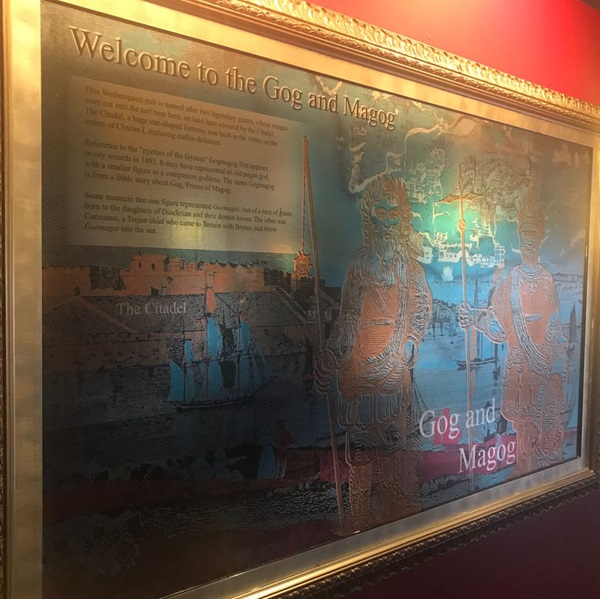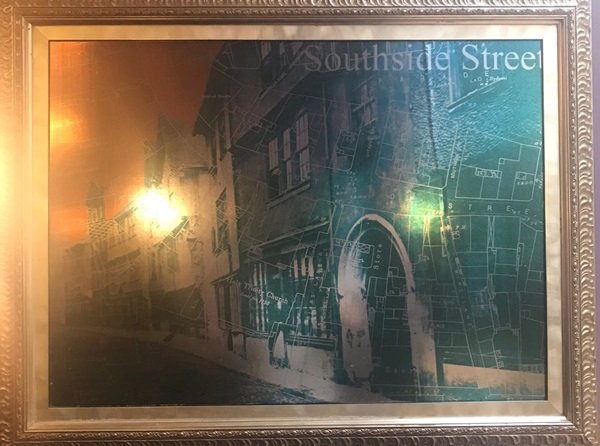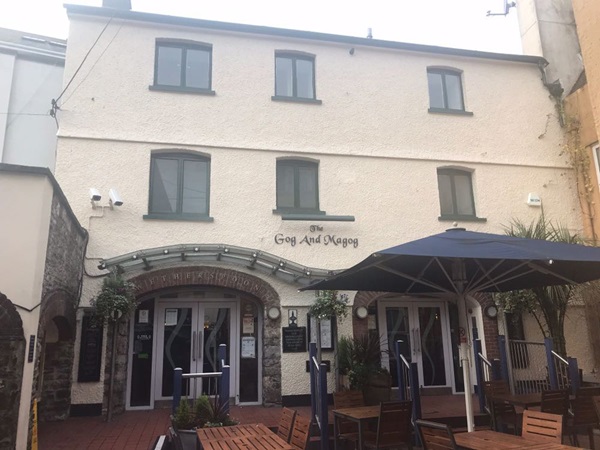57–59 Southside Street, Plymouth, Devon, PL1 2LA
Named after two legendary giants, whose images were cut into the turf near here, on land later covered by the Citadel fortress. The Citadel was built on the orders King Charles II, in the 1660s. This massive star-shaped fortress, looking out on the harbour, replaced the fortifications on the Hoe, begun by Sir Francis Drake in the previous century, as well as the earlier castle on Lambhay Hill.
Prints and text about The Gog and Magog.

The text reads: This Wetherspoon pub is named after two legendary giants, whose images were cut into the turf near here, on land later covered by the Citadel. The Citadel, a huge star shaped fortress, was built in the 1660s on the orders of Charles I, replacing earlier defences.
Reference to the “picture of the Gyaunt” Gogmagog first appears in city records in 1493. It may have represented an old pagan god, with a smaller figure as a companion goddess. The name Gogmagog is from a Bible story about Gig, Prince of Magog.
Some maintain that one figure represented Goemagot, last of a race of giants born to the daughters of Diocletian and their demon lovers. The other was Corinaeus, a Trojan chief who came to Britain with Brutus, and threw Goemagot into the sea.
A print of Southside Street.

External photograph of the building – main entrance.

If you have information on the history of this pub, then we’d like you to share it with us. Please e-mail all information to: pubhistories@jdwetherspoon.co.uk